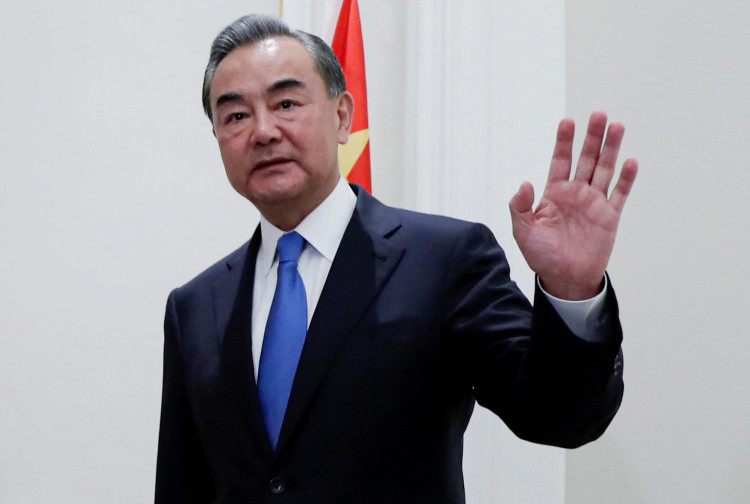Beijing's top diplomat called on the United States to dial down its anti-China rhetoric so both countries can reset their seriously strained diplomatic and economic ties.
State Councilor Wang Yi signaled China's willingness to renew talks with Washington after relations plunged to a new low under former president Donald Trump.
"We stand ready to have candid communication with the U.S. side, and engage in dialogues aimed at solving problems," said Wang during a forum at China's Ministry of Foreign Affairs.
"Over the past few years, the United States basically cut off bilateral dialogue at all levels"
Wang said the first call this month by Joe Biden as president to Chinese President Xi Jinping was a positive step that can be built upon.
Wang, however, just as quickly placed roadblocks to the constructive dialogue China said it wants by telling the Biden administration to stop interfering in China's internal affairs, and stop "conniving" with separatists in Taiwan fighting for the island's independence from China.
He urged Washington to respect China's core interests and stop "smearing" the ruling Communist Party of China
And to illustrate what China really expects of the Biden administration, the foreign ministry played archival film footage of the "ping-pong diplomacy" of 1972 when an exchange of table tennis players eventually led to the U.S. signing the Shanghai Communiqué in 1972 and establishing diplomatic relations with China in 1979.
President Richard Nixon visited China on Feb. 21, 1972, the first American head of state ever to set foot on the Chinese mainland. Nixon, Secretary of State Henry Kissinger and others met with Chairman Mao Zedong and Premier Zhou Enlai.
The two countries issued the Shanghai Communiqué at the end of Nixon's weeklong visit. This began the process of full normalization of relations between the United States and China. Formal diplomatic relations with China were established on Jan. 1, 1979, under the presidency of Jimmy Carter.
In the Shanghai Communiqué, the U.S. stated its intention to withdraw its military from Taiwan, and support a "peaceful settlement of the Taiwan question by the Chinese themselves."
Wang also called on Washington to remove Trump's tariffs on Chinese goods and abandon what he said is the irrational suppression of the Chinese tech sector. He said these steps will create the "necessary conditions" for cooperation.
In its one month in office, however, the Biden administration has shown scant indications of departing from Trump's hard line against China. Biden's rhetoric against China also appears to use some of the same themes as Trump.
Biden said China remains America's "most serious competitor" in his first major policy speech since ascending the presidency on Jan. 20. He also said he'll call out China's economic and human rights violations.
"We will confront China's economic abuses," according to Biden.
He said the U.S. will resist China's "economic abuses, counter its aggressive, coercive action to push back on China's attack on human rights, intellectual property, and global governance."
His administration's relationship with Beijing won't only be confrontational, however.
"But we're also ready to work with Beijing when it's in America's interest to do so. We'll compete from a position of strength by building back better at home and working with our allies and partners."
Biden pledged to restore U.S. alliances and lead with multilateral diplomacy to meet international crises while reversing Trump's "America First" foreign policy.





